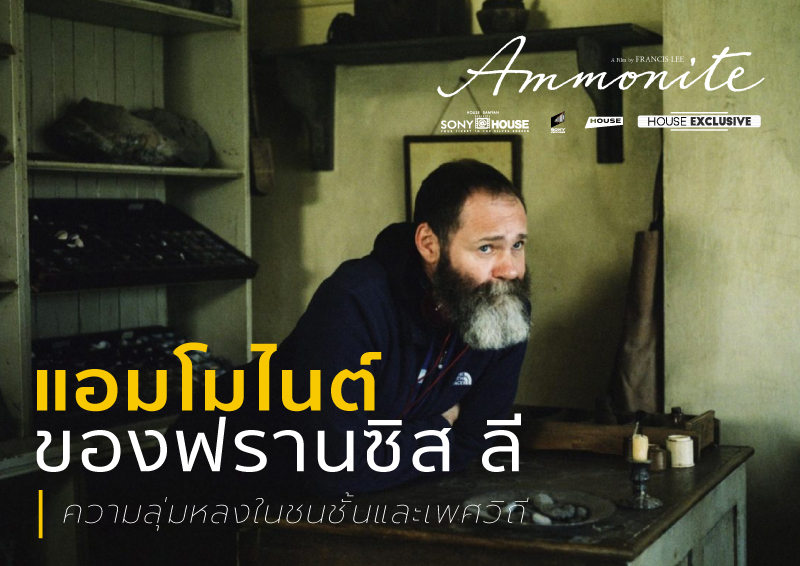NEWS

Francis Lee on Ammonite, OBSESSION WITH CLASS AND GENDER
FRANCIS LEE ON Ammonite,
OBSESSION WITH CLASS AND GENDER
Francis Lee : I was not a good actor. I was quite a bad actor. And I’m very happy to say I gave up acting about 15 years ago. Or it gave me up, I don’t know which. I went into acting, because when I was a kid growing up in Yorkshire, in the middle of nowhere, I didn’t have a great education. A very working class background. I knew I always wanted to write and direct but I just didn’t know how you did that. And I didn’t see anybody like me writing or directing. The only other option I felt was available for me at that time, because I liked telling stories, was going into acting because I could see the route to that. I could see that you could go to drama school, you could graduate, you could get an agent, and hopefully you’d get some work.
So I secretly held on to that desire to write and direct, but I was never confident enough to put my hand up and say, “I would really like to do this.” I was very lucky. As I say, I wasn’t good. I was very lucky. So I did work with some amazing directors, and Mike Leigh being one of them. Mike taught me so much about character, and about how you develop character, and the details of character and the environment. I did take that forward with me when I eventually got to being about 40 and thought, you know, if I’m never going to write and direct and I’m gonna have to get on with it. That’s when I first thought about writing a short film. Obviously, I couldn’t afford film school or any kind of film education. So I learned about filmmaking really from watching films.
There’s so little documented about Mary Anning. You get to reintroduce her to the world and you get to create her character based on what we know, but also what you can imagine. So why did you choose to explore her story through the context of this imagined relationship with Charlotte Murchison?
When I first came across Mary Anning back in 2017, and realized there was but there was virtually nothing written about her by contemporaries at the time, I was instantly drawn to her mainly because of those circumstances that resonated very personally with me. She was a working class woman, born into a life of poverty, in a very patriarchal class-ridden society. She had very little education. And yet somehow, through her own determination, and own sense of discovering these fossils, rose to what we would now call the leading paleontologist of her generation. That journey really resonated with me. I figured that there was so little written about her by contemporaries because she was a woman, and she was a working class woman, and here she is in this patriarchal class ridden society. I knew I wanted to elevate her. And I wanted to give her a story that felt worthy of her. I knew I didn’t want to make a biopic, but I wanted to make an imagined snapshot of what her life could have been.
Also, I’m very obsessed with intimate human relationships, and the machinations around that. So I knew I wanted to tell a story around a deep, intimate relationship. So when I started to look for who I thought Mary might have a relationship with, it didn’t feel like it should be with a man. Because in her experience, and in her life, men had overlooked her. They had, in a sense, reappropriated these incredible fossils she found. So it didn’t feel like it would be an equal relationship. But a woman felt like it would be an equal relationship. And at the same time, I was reading about same-sex female relationships in the 18th and 19th century, particularly an academic paper written by Carol Smith Rosenberg, which documented female relationships through letters that they were writing to each other. And here, what was the evidence of these passionate, emotional, loving relationships between women that had gone unnoticed, as it were. I wanted to highlight all of those things, but mainly to give Mary Anning a very respectful, elevating relationship.
This article publish by thefilmstage.com